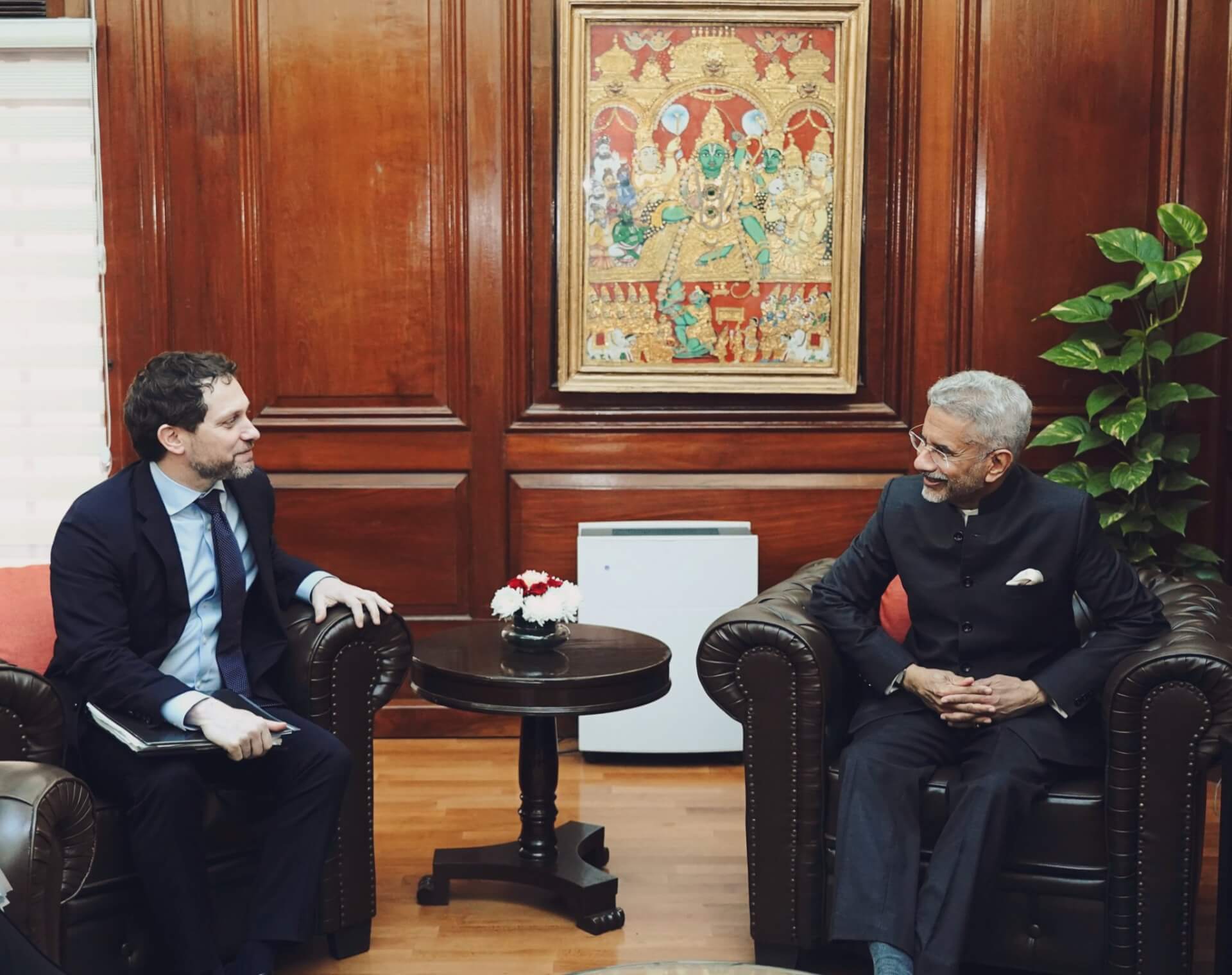US Principal Deputy National Security Advisor (NSA) Jonathan Finer said that the US and India could work through their differences constructively without derailing the broader cooperative agenda.
The deputy NSA, who led a delegation to India, called on Indian External Affairs Minister (EAM) S. Jaishankar, Indian NSA Ajit Doval, Foreign Secretary Vinay Kwatra, and his Indian counterpart Vikram Misri during his time in the country.
India-US Mature Relationship
This was the first high-level visit from the US after the country’s Justice Department accused an Indian government official of directing an unsuccessful plot to kill Sikh separatist leader Gurpatpwant Singh Pannun on American soil.
Principal Deputy National Security Advisor Jon Finer led a U.S. delegation to New Delhi on Dec 4 for an intersessional review of the U.S-India Initiative on Critical and Emerging Technology (iCET) with Indian Deputy National Security Advisor Vikram Misri. In addition, he… pic.twitter.com/UQVUfpAAKe
— ANI (@ANI) December 5, 2023
In his address at the summit held by the Indian External Affairs Ministry and Carnegie India, Finer said, “I think the US and India have had a complicated history. We have not always been wholly aligned and have not always found it easy to work together as partners, and we have not found it easy to be on the same side of issues geopolitically.”
“There are many difficult issues that remain in the US’ relationship with India right up to the present day,” the deputy NSA remarked.
“The US and India have mature relationships that identify our opportunities, like in Quad. There are some aspects on which we agree and some we disagree, like the Russia-Ukraine war. However, even on the most challenging issues, we can get through,’’ he added.
Speaking at the same event, the Indian EAM said that there is structural soundness to the India-US ties and the two countries had managed their relationships over the past two decades and five different U.S. Presidents.
Discussion on Assassination Plot, Gaza Conflict
During his bilateral and regional consultations with the Indian dignitaries, Finer held in-depth discussions aimed at strengthening coordination and policy alignment across the Indo-Pacific, including the wider Indian Ocean region.
The two sides discussed the Middle East, including the recent attacks on commercial vessels in the Red Sea and the importance of safeguarding freedom of commercial navigation.
They also held discussions on plans for a post-conflict Gaza and a pathway toward a two-state solution.
“Finer acknowledged India’s establishment of a Committee of Enquiry to investigate lethal plotting in the United States and the importance of holding accountable anyone found responsible,” the White House readout mentioned.
According to PTI, the issue figured in the meeting between Finer and Jaishankar. However, the Indian statement had no mention of the same.
iCET Review
Finer led a US delegation to New Delhi on 4 December for an intercessional review of the U.S-India Initiative on Critical and Emerging Technology (CET) with Indian Deputy NSA Misri.
Jonathan Finer, Principal Deputy National Security Adviser of the United States meets Vikram Misri, Deputy National Security Adviser (Strategic Affairs), National Security Council Secretariat (NSCS) in Delhi
— ANI (@ANI) December 4, 2023
The two Deputy NSAs undertook the first comprehensive mid-term review… pic.twitter.com/V9FTJsxmQ5
Announced in May 2022 and launched in January 2023, the iCET is a framework agreed upon by India and the US for cooperation on critical and emerging technologies.
The visit was a follow-up to US NSA Jake Sullivan’s visit to India in June 2023, and Indian NSA Ajit Doval’s US visit in January 2023.
During the consultations, the two deputy NSAs reviewed key bilateral issues and exchanged views on regional and global developments. They took stock of progress made in building technology value chains under the framework of iCET.
Finer and Misri expressed satisfaction with ongoing collaborations in diverse domains, including semiconductors, quantum, artificial intelligence, defence innovation, space, and advanced telecommunications.
Additionally, the two sides agreed to broaden the scope of iCET to include biotechnology, critical minerals and rare earth processing technologies, digital connectivity and digital public infrastructure, and advanced materials.

